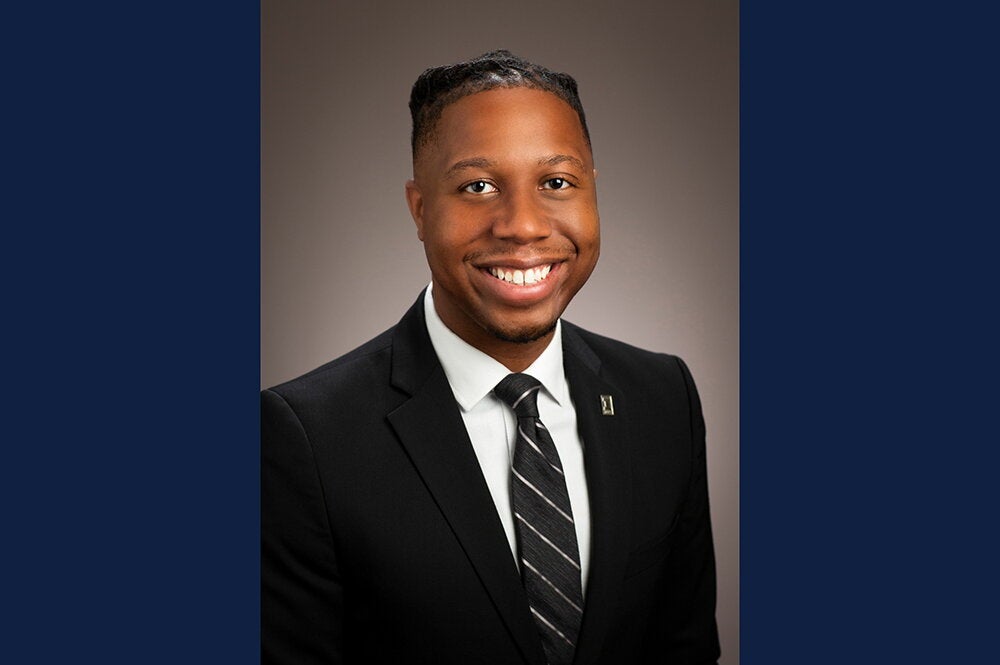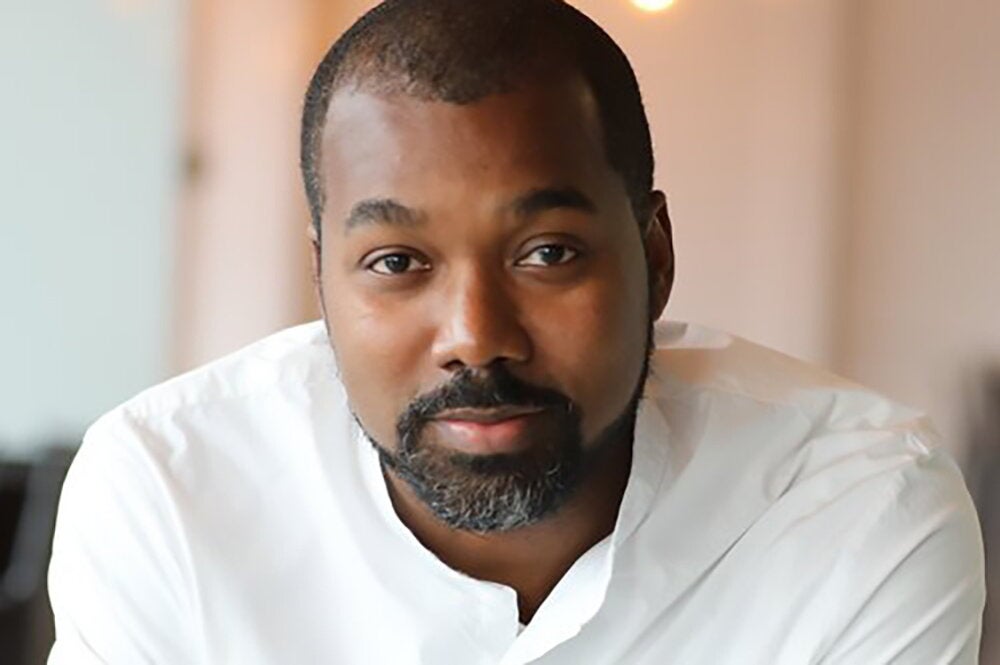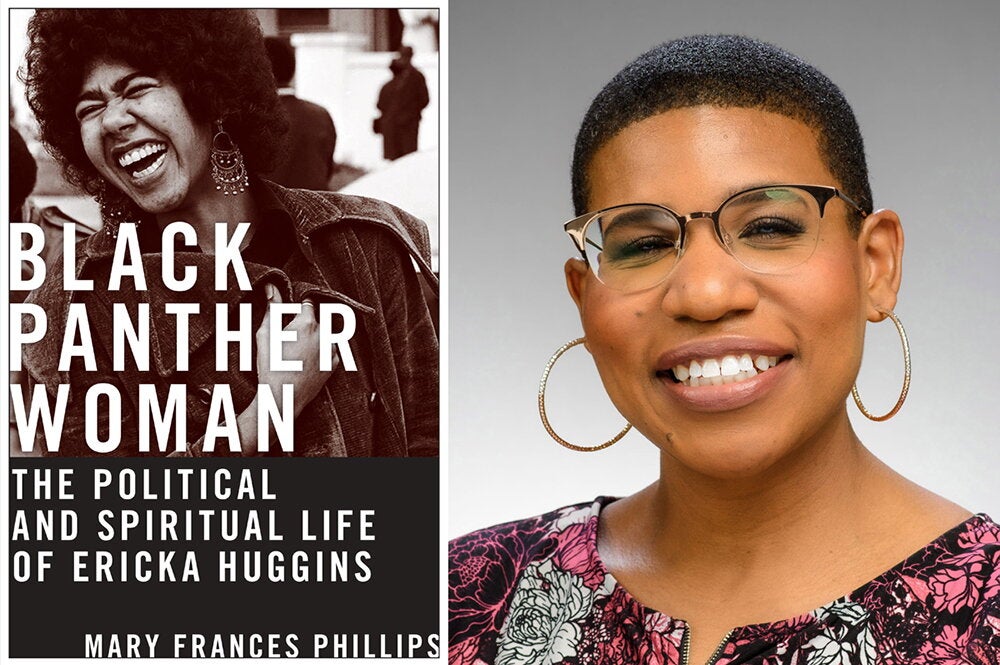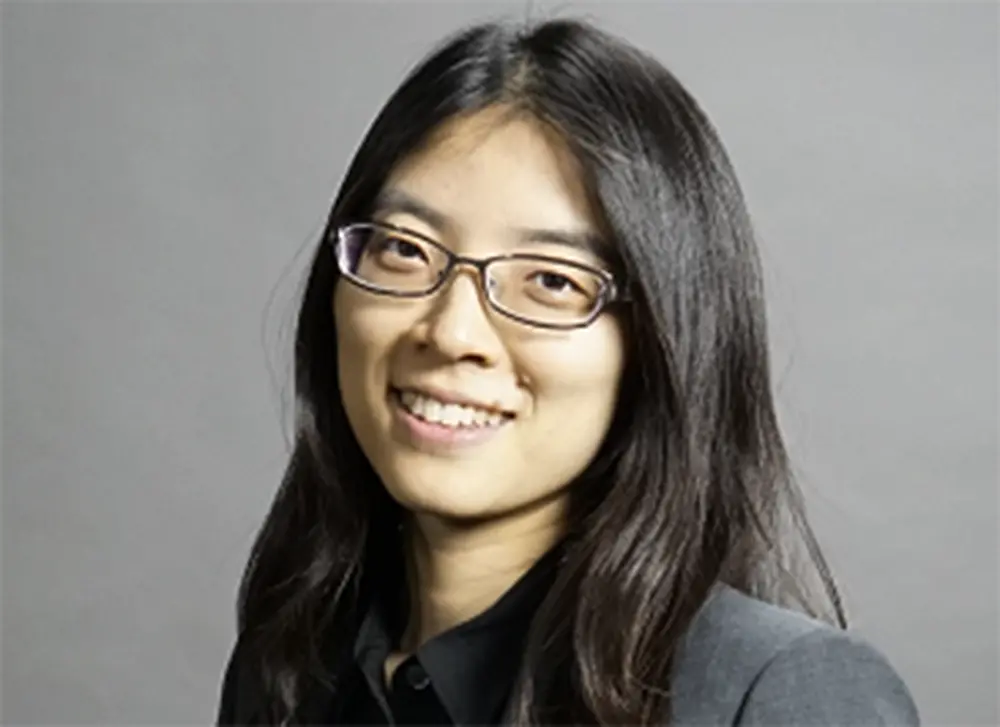
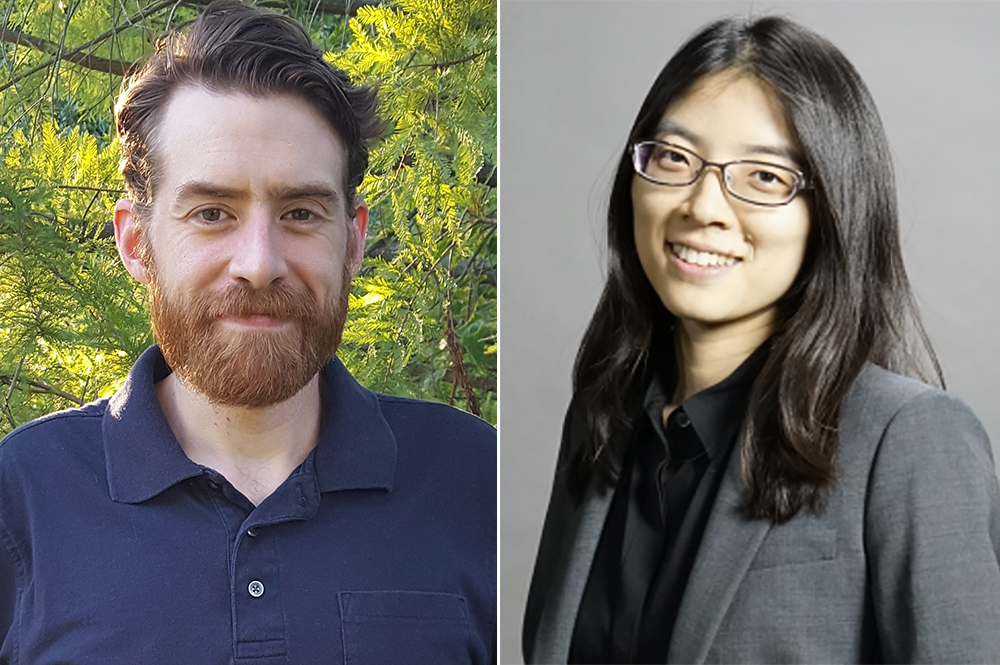
This year’s new faculty in the College of LAS come from as far away as Germany and Florida. In the case of Adam Dolezal, it's a homecoming. Some 11 years after earning his bachelor’s degree in integrative biology at Illinois, and then going on to earn his doctoral degree at Arizona State University, Dolezal is back in Morrill Hall. This time he’s teaching.
He’s one of 23 new College of LAS faculty teaching and researching this fall in a variety of departments, from animal biology and statistics to philosophy and East Asian languages and cultures. They come from a range of graduate programs and other positions at a variety of schools—Harvard, Yale, the University of Wisconsin, Iowa State, MIT, Temple University, and the University of Chicago, just to name a few.
“We’re excited and fortunate to have our new faculty on campus with us this fall,” said Feng Sheng Hu, Harry E. Preble Dean of the College of LAS. “They bring with them a wealth of new ideas and energy, and they’re each committed to advancing the
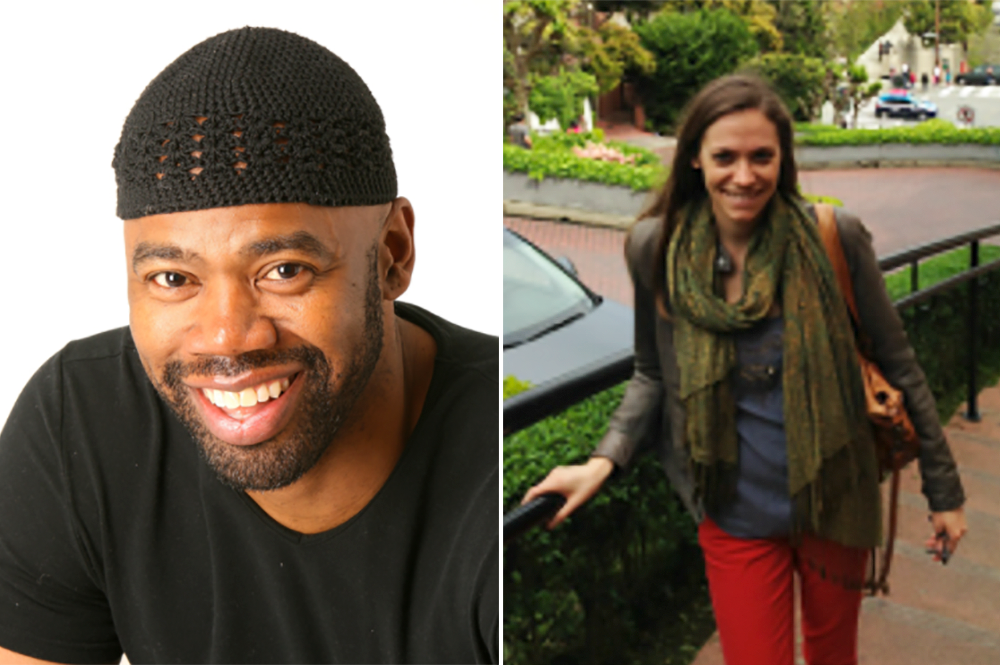
teaching and research missions of our college. We look forward to partnering with them for long and productive careers at Illinois.”
Read on for profiles of a few of them. A full list of the new faculty follows.
Adam Dolezal: Entomology
Adam Dolezal, assistant professor of entomology, was one of the first to receive a degree from the integrative biology program at the University of Illinois. Now, after receiving his doctoral degree at Arizona State University, Dolezal is back, but this time to teach and conduct research — in Morrill Hall, the very building he spent a lot of time in as an undergraduate.
“Illinois is such a great university for entomology,” Dolezal said. “It has such a long tradition of entomological research. There are really great people here already.”
Dolezal will teach animal physiology next spring, and will continue working on honeybee research that he began as a postdoctoral researcher at Iowa State University.
“We were mostly looking at stressors of honey bee health,” he said. “It’s become obvious there’s no single smoking gun about what has been a problem for bees, and the general consensus has been that it’s likely interactions of multiple stressors.”
While at Illinois, and in the School of Integrative Biology, Dolezal will examine these different stressors, which have been narrowed down to food nutrition, pathogens (or disease,) and pesticides.
“A bee could have a poor quality diet and in a vacuum they might be okay,” Dolezal said. “But if you then have a pathogen on top of that, they’re toast.”
Dolezal will then apply this research to study the effects of landscape on honeybees. For example, studying how a corn and soybean landscape affects the honeybees versus a landscape that includes more access to forests and prairie.
“I also did some work on how honeybee pathogens could infect native species,” Dolezal said. “Honeybees are not a native species to the Americas, they are brought over from Europe. The pilgrims brought some, and the Spanish brought them.”
Dolezal said he’s glad to be back at Illinois and excited to teach and continue his research.
“Illinois seems to attract really good undergraduates and graduate students,” he said. “Working with good people is always one of the best parts of the job.”
Hee-Sun Han: Chemistry
From MIT, to Harvard, to the University of Illinois, Hee-Sun Han looks forward to continuing her groundbreaking research as a professor of chemistry—and a performance by the Marching Illini was a good start.
During Han’s time as a student and post-doctoral researcher at MIT, she invented technologies to look at live cells in live animals, and to examine the environments of cells in their native states. As a post-doctoral researcher at Harvard, Han pioneered technologies to learn what is going on inside the individual cells or viruses. The new techniques allow researchers to identify the genome sequence of individual cells or viruses or to investigate the RNA expression in each cell, which ultimately determines the function of the cell.
Now, as an assistant professor at Illinois, Han hopes to get a more complete picture of the cellular networks and understand how organs function or dysfunction in humans and animals.
“If we combine these two techniques together, we can get a more complete picture of how this massively complex system works as a whole,” Han said. “To understand how a complex system works, we need to understand how each individual component works and how they interact with each other and work together. By connecting two areas of research that I’ve been doing in the past, we can study tissues or organs at single cell resolution while keeping the global perspective in mind.”
Han’s research will have important implications when it comes to understanding how disease develops, such as with tumors. By learning how cancer develops and evolves, researchers can develop drugs to fight these diseases.
“Single cell approach will first tell us whether a patient has rare cell populations that are very aggressive and can survive drug treatments. If these cells survive, even if they are just two out of millions, they can repopulate and results in a very tough situation. You can only spot rare cells when you analyze tissues at single cell level.” Han said.
However, according to Han, studying diseased tissues at a single cell level is not enough.
“Recently, researchers revealed that it is not only cancer cells that drive cancer development but also the interaction between cancer cells and normal cells that intensely affects how the disease will progress,” she said. “Therefore, we need to understand how single cell states and functions are spatially organized and coordinated and work together. We will only be able to develop right strategies to fight with complex disease like cancer if we understand how cell works both individually and collectively.”
Along with continuing her research, Han will teach a graduate course in advanced analytical chemistry this fall. Han said she is excited to work alongside other chemistry faculty members and has enjoyed her experience at Illinois thus far.
“Both MIT and Harvard are private institutes and I find it very different from here,” Han said. “I was in the new faculty orientation and the Illini marching band performed in front of us — it was so cool and so full of energy. I highly look forward to being a part of this energetic, enthusiastic community and working with the students at U of I.”
C. Kemal Nance: African American Studies
C. Kemal Nance’s dance training started early on. Though he didn’t begin to dance professionally until he was an undergraduate student, he can’t recall a time when he didn’t dance.
“Once you start, you don’t stop,” Nance said. “Dancing with my mother in the living room and learning the latest hip hop dance steps, I consider all of that a part of my training as well.”
Nance is an assistant professor of African American studies in the College of Liberal Arts & Sciences and a new assistant professor of dance for the College of Fine and Applied Arts. Dance means a lot to Nance on a personal level, and so does his research.
“I’m very much a proponent of auto ethnography. Much of my research interests stems from my own experience,” Nance said. “As an African American person I’ve always been interested in historical and sociological occurrences that affect people like me.”
Nance, who earned a doctoral degree from Temple University in 2014, is continuing his research from his postdoc dissertation at Illinois as he examines the gendered experiences of African American men who study African dance in the United States.
“One of the things that’s common for black men who dance is there’s not a lot of us in those particular venues,” Nance said. “Because I understand the integral relationship that dance has in continental African culture, I was always saddened by this disparity of black men who dance in the country. That kind of triggered my academic interest as well.”
While masculinity in men is an increasingly studied field, Nance said it’s too broad to apply to all groups, which is why his research is crucial.
“In all of those different literatures that are evolving, the African American males’ performance in African dance has been eclipsed. Nobody is really treating that as a separate discourse,” he said. “When you narrow it down to black masculinity, it’s always been a white antecedent which I think is very problematic. It’s very important to unearth black male ways of being as defined by black men. I think that’s critically important.”
One of Nance’s favorite classes to teach each spring is a dance history seminar, in which he lectures about black male dancers and performers.
“Contemporary forms of dance can be a very nurturing thing, not just for African American culture, but also a voice for many, many people,” Nance said. “If people have the opportunity, they should somehow connect to what I think is a very wonderful art form of expression.”
Alyssa Prorok: Political Science
Alyssa Prorok, assistant professor of political science, always knew she wanted to be a professor.
“I always knew I wanted to go to graduate school and be a professor. I’ve always loved the academic lifestyle,” Prorok said.
Now, she is on faculty at Illinois after spending four years as a faculty member at the University of Iowa. She’s excited by the extensive resources at Illinois for faculty research, and plans to continue to extend her research on civil wars.
“What I study is primarily civil war — why rebel groups fight against states. Most of my research has focused on how civil wars end and why they do, with a focus on leadership of rebel organizations and states,” Prorok said. “When leaders are feeling threatened sometimes they’re unwilling to come to the negotiating table and lay down arms.”
Prorok, who earned her doctoral degree from the University of Maryland, said her interest in civil wars began as an undergraduate student at Notre Dame, when she studied abroad in Dublin.
“Not long after the peace agreement had been signed in Northern Ireland, you could still see the impact of the conflict there. There were really divided neighborhoods, the Catholic neighborhood and the Protestant neighborhoods,” she said. “I saw firsthand what the impact of conflict is.”
This semester, Prorok is teaching a course on international conflict and a course on civil war.
Students will focus on the different theories of civil war that scholars have identified and apply them to various conflicts present in the world right now. For instance, the discussion of “greed versus grievance” is a topic that her class will touch on, she said.
Prorok intends to broaden her passion for civil war research into what she calls “cooperative events” that occur during conflict.
“We often think, ‘This battle happened, this many people died,’ but we often forget about the non-violent events that are happening,” Prorok said. “I’m excited to have the institutional support for this research.”
Other new faculty this fall
Marsha Barrett, assistant professor, Department of History. (PhD, ‘ 14, Rutgers University).
Alexander Bartik, assistant professor, Department of Economics. (PhD, ’17, MIT).
Sabyasachi Chatterjee, assistant professor, Department of Statistics. (PhD, ’14 Yale University).
Chunyuan Diao, assistant professor, Department of Geography and Geographical Information Systems. (PhD, ’17, University of Buffalo).
John Gallagher, assistant professor, Department of English. (PhD, ’14, University of Massachusetts).
Mark Hauber, professor and Harley Van Cleave Professorship in Host-parasite Interactions, Department of Animal Biology, School of Integrative Biology. (PhD, ’02 Cornell University).
Verena Hoefig, assistant professor, Department of Germanic Languages and Literatures, School of Literatures, Cultures and Linguistics. (PhD, ’14, UC Berkeley).
Gregory Howard, assistant professor, Department of Economics. (PhD, ’17, MIT).
Jamie Jones, assistant professor, Department of English. (PhD, ’11, Harvard University).
Denka Kutzarova-Ford, professor, Department of Mathematics. (PhD, ’83, University of Sofia).
Benjamin Levinstein, assistant professor, Department of Philosophy. (PhD, ’13, Rutgers University).
Daniel Linders, assistant professor, Department of Mathematics. (PhD, ’13, KD Leuven).
Yihao Liu, assistant professor, Department of Psychology, School of Labor and Employment Relations. (PhD, ‘ 17 University of Florida).
Benjamin Miller, assistant professor, Department of Political Science. (PhD, ’15, Stanford University).
Gian Piero Persiani, assistant professor, Department of East Asian Languages and Cultures, School of Literatures, Cultures and Linguistics. (PhD, ’13, Columbia University).
Minchul Shin, assistant professor, Department of Economics. (PhD, ’15, University of Pennsylvania).
Russell Weinstein, assistant professor, Department of Economics, School of Labor and Employment Relations. (PhD, ’14, Boston University).
JungHwan Yang, assistant professor, Department of Communication. (PhD, ’17, University of Wisconsin).
Chen Yeh, assistant professor, Department of Economics. (PhD, ’17, University of Chicago).
